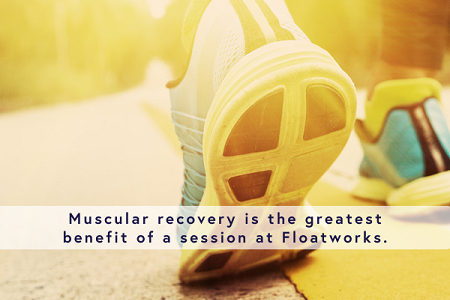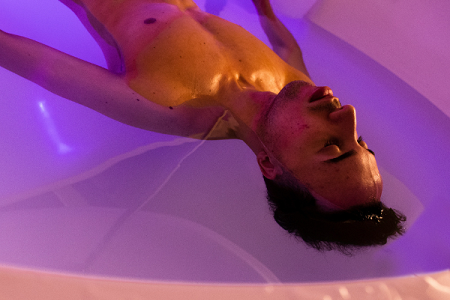The five most fascinating scientific studies on mindfulness
The mindfulness bug is spreading, but how much does the science back up the claims?

Mindfulness is a concept so simple, yet on the whole we as a species still struggle to wrap our heads around. To be mindful is to be; that is to experience the present to its very fullest, without clinging on to the past, or feeling anxious towards the future. It is not to clear one’s mind, but to focus one’s attention on the now – the sights, the sounds, the smells, taste, and emotions you’re experiencing at the present moment. Easier said than done, perhaps, but it’s a tool millions of people across the globe use to help them better deal with the stresses and pressures of modern life.
But is it really good for us? It would be easy to dismiss the current stampede towards mindful living as something of a trend, but with millions of people undertaking mindful tasks by the day and claiming it helps them, we can’t all just be imagining the benefits. Thankfully, the science is there to back up common claims – that engaging in even short bursts of daily mindfulness can help you live a more stress-free lifestyle, combat anxiety and depression, focus your mind and improve productivity, and even ward off some common physical ailments. Allow us to talk you through the science…
Mindfulness can help up be more caring to others
Mindfulness has been shown to deactivate the Default Mode Network (DMN) in the brain; what is often referred to as the ‘me’ centre. It is the constant stream of consciousness when our minds are aimlessly wandering from thought-to-thought, and by slowing this down at the very least, we can train ourselves to become more aware of our thoughts and feelings, without directly associating ourselves with them. The very fact we can do this in theory should allow us to relate to the feelings of others, and there is evidence to back this up: notably this experiment that showed a group who had practised mindful meditation were more likely to offer their chair to an actor with a broken foot, than those who had not.
Mindfulness therapy can treat depression and anxiety just as well as drugs
In the biggest ever scientific review of its kind into mindfulness, in 2016 The Oxford Mindfulness Centre went some way to proving that Mindfulness Based Cognitive Behavioural Therapy (MBCT) can have significant results in preventing relapse in patients with long-term depression. Through teaching meditative techniques, and encouraging patients to absorb and analyse their emotions without being controlled by them, they showed patients who engaged in the therapy were 23 per cent less likely to suffer an episode of relapse than those who didn’t, even if they stopped taking their antidepressants. This only serves to back up the work of the scientists who devised MBCT just over a decade ago.
Mindfulness can rewire your brain
A 2011 study published in the Psychiatry Research: Neuroimaging journal showed that mindful meditation really does change your brain chemistry, with MRI scans showing growth in the hippocampus – the area related to memory and learning – and reductions of grey matter in the amygdala in people who meditated for 30 minutes a day. And that’s staggering to think about – you can change the makeup of your brain just by using it!
Mindfulness can help fight disease
That’s what a team of Harvard Medical School researchers set out to prove in their 2009 study. Specifically, they were looking at how meditation and mindfulness practices affect us on a genetic level; what they discovered is truly fascinating. We all know that stress, caused by an increase of hormones like cortisol and adrenaline, can increase blood pressure, cause muscle tension and weaken our immune systems, but by contrast, meditation and yoga and mindfulness induce what they dubbed the ‘relaxation effect’, which over time effectively turns off the genes that cause those particular genes, and turn on the ones that fight them.
Mindfulness and meditation can reduce implicit age and race bias
Now here’s a weird one. Two University of Michigan students published a paper in 2014 that put forward evidence that engaging in regular mindfulness practices can help us dissolve previously held associations we may subconsciously hold relating to race, or sex, or any other characteristic to which we may instinctively attribute prejudice. It can even help you smash preconceptions you didn’t know you had. Here’s a succinct overview of their study that explains why even the words black, old, young, female, straight, and so on hold connotations we’re not consciously processing.
So… how can I be more mindful?
If you’ve read up on the benefits of mindfulness and want to start incorporating it into your daily life, you don’t have to make huge leaps to get there. Start by making small changes, like…
Do a ‘body scan’
Take five minutes to close your eyes, and concentrate on how every little bit of your body is feeling. Start with the toes, draw your awareness to them and ask yourself how do they feel? Are they relaxed, or are there any unusual pains? Slowly draw your attention up through your legs, torso, arms, right down to your fingertips, and up to the top of your head. Tuning in to how your body feels is the first step towards tuning in to the present.
Take a walk in the park
…and stimulate those senses! The sights, and especially the smells of nature are a powerful tool in bringing your attention to the present. Notice how the trees sway in the wind. Watch squirrels burying their nuts for the season ahead. Just soak it all in. Immersing yourself in nature can change your brain for the better.
Analyse your emotions, and don’t shy away from the negative ones
After a while of practice, you’ll notice your own ability to separate yourself from emotions – both good and bad. By allowing yourself to process a thought before reacting, as we are so often inclined to do, allows us to consider the consequences, to ask ourselves ‘why does this emotion make me want to react like that?’, and if need be, change our course of action.
Make everyday tasks mindful activities
From washing up, to cooking, to cleaning, to showering, you really can take a mindful approach to every part of your day. Even recognising the heat from washing up water, or making perfect lines with the hoover on the carpet draws your attention to the present moment, and can put you on the path to a more mindful existence.
And finally: just… breathe
In… and out. And repeat.
For a deeper look at the research conducted into mindfulness, try one of these links:
BeMindful.co.uk
Oxford Mindfulness Centre
NHS advice on mindfulness










